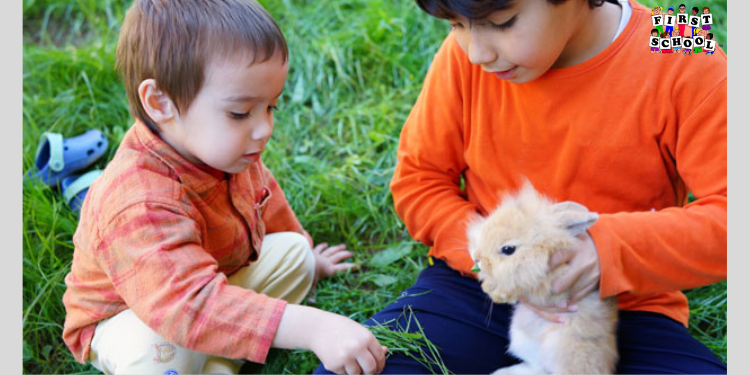

A child's Wonder Years, ages 3 to 5, are full of excitement as the child starts to explore and learn. During this time, the preschoolers learn how to interact with other children and how to think and control their bodies and minds.

A structure helps kids feel safe. For many preschoolers, the world can be a scary place. That's why the household should be predictable. Having a regular schedule of fun, food, and then bedtime will help keep children happy and properly developing.
Another important parenting tip is to make sure that your preschooler gets a sufficient amount of sleep. Putting your preschooler on a regular routine will help them learn to relax before bedtime.
While your preschooler may no longer have meltdowns, their feelings are still developing. Therefore, it's important that you listen to your preschooler and help them deal with finding themselves in a big world.
This is the time where children may begin choosing what foods to eat and how much to eat. Look to serve your child an assortment of healthy foods. Preschoolers will often choose healthy foods that they feel will meet their needs if you give them direction.
Due to your preschooler's brain rapidly developing, a large part of your parenting will depend on you having some personal time with the child. You will help your child develop physically and emotionally by building that connection.
Try to avoid punishing your child. Preschoolers need some guidance because they are just starting to learn how the world works. The child's behavior could get worse if they are constantly disciplined, so try to empathize with their feelings.
Positive parenting teaches how a parent should learn about the difficulties their preschoolers face and effectively come up with solutions to their problems while maintaining a positive and impactful effect. Its main focus is to develop a strong, deeply committed relationship between a parent and children.
Positive parenting highlights the value of mutual respect and the use of positive interaction and disciplining methods. Instead of punishing the previous misconduct, positive parenting emphasizes the teaching of correct future behavior. In fact, various studies suggest that when parents keep yelling and nagging their children, the kids are bound to be angry and misbehave too.
Good discipline positively impacts the child's behavior and emotional development. In contrast, harsh parenting in childhood leads to increased behavioral issues. Cold, detached, and insensitive parenting leads to children with poor self-regulation, exacerbating the child's behavioral troubles.
Punishing your preschoolers to correct their behavioral problems isn’t the only solution. With no more yelling, struggles, or hostility, the relationship with your child will improve. Also, open communication is essential for positive parent-child dynamics.
Positive parenting will help you raise your child with self-esteem. They will be more resilient and bounce back from any adversities. Your child will also have less conflict and better connections with others. They will also have positive mental health.